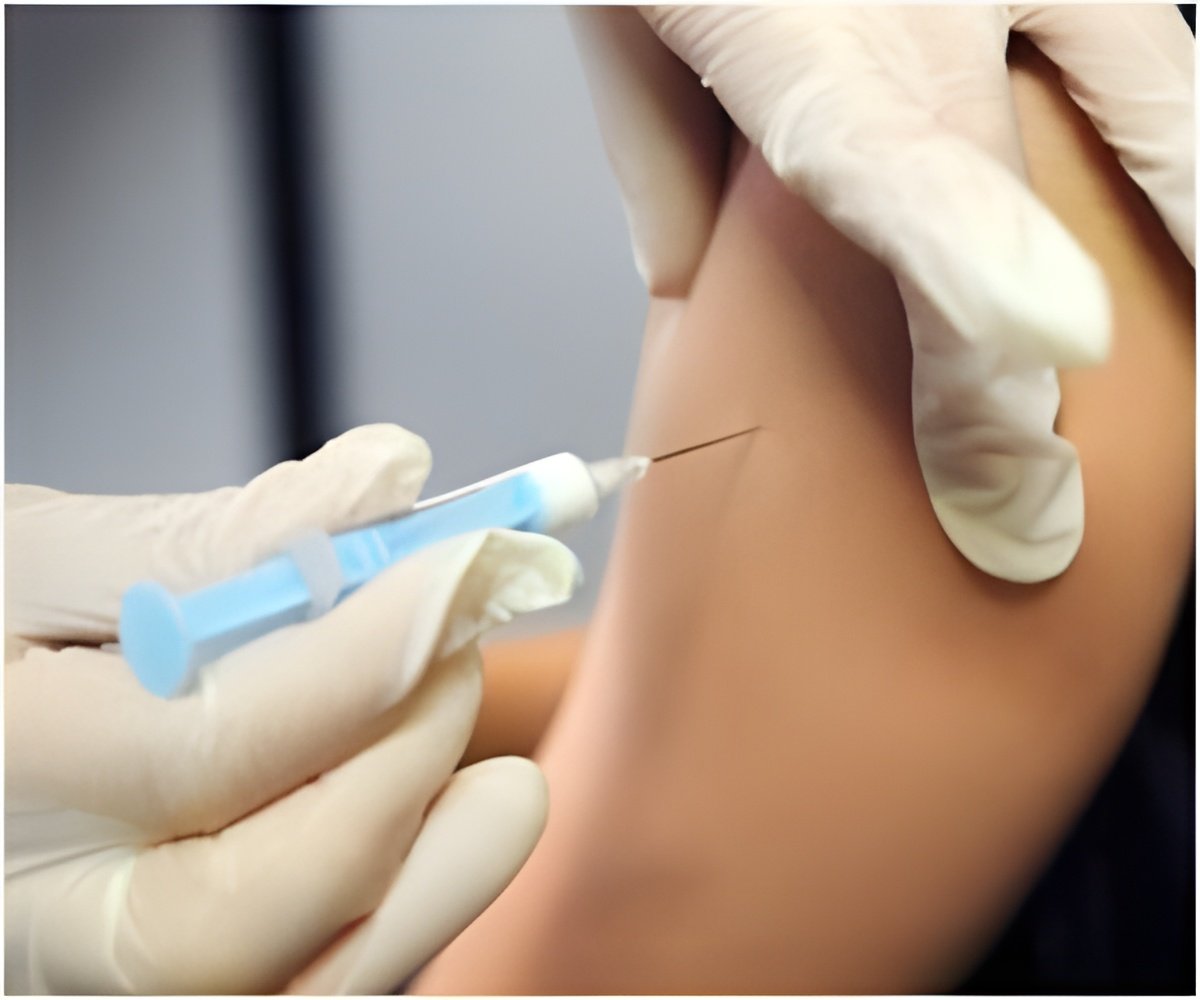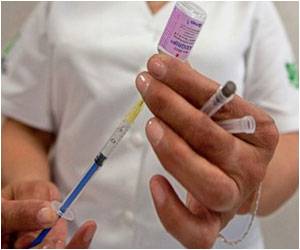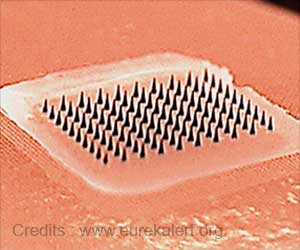Women's stronger immune response to a flu vaccination disappears as they age as their estrogen levels decline, finds a new study.

Experiments in mice yielded similar results and suggested that estrogen levels of which lessen with age in females boosts females' immune responses to flu vaccines, while testosterone lowers males' responses. The scientists expect that their results will be generalizable to other vaccines.
"We need to consider tailoring vaccine formulations and dosages based on the sex of the vaccine recipient as well as their age," says study senior author Sabra Klein, Ph.D., an associate professor in the Department of Molecular Microbiology and Immunology at the Bloomberg School.
Scientists have known that women tend to have stronger immune responses to vaccines, and also that the elderly tend to have weaker responses. Klein and colleagues in their study set out to get a better understanding of the interaction of these sex- and age-related differences.
First, they evaluated immune responses to the 2009 H1N1 influenza vaccine in 145 human volunteers--one group age 18-45 years, the other 65 and older. Analyzing key markers of the immune response, the researchers found that, on average, women in the younger group had a stronger response compared to both the men and the older women.
The younger women had, for example, a jump in their levels of the important immune protein IL-6 that was almost three times greater than that seen in the younger men, and nearly double that seen in older women. Measures of the anti-flu antibody response also were higher for the younger women compared to the men and the older women, though the greatest differences were between the younger and older women.
Advertisement
In the mice and in the human volunteers, the younger females, as expected, had higher bloodstream levels of estradiol, one of the important estrogens, compared to the older, post-menopausal females. Similarly, the younger males had higher bloodstream levels of testosterone compared to older males. Stronger vaccine response was linked to higher estradiol among the females and, more weakly, to lower testosterone among the younger males.
Advertisement
"What we show here is that the decline in estrogen that occurs with menopause impacts women's immunity," Klein says. "Until now, this hasn't been considered in the context of a vaccine. These findings suggest that for vaccines, one size doesn't fit all perhaps men should get larger doses, for example."
She and her colleagues are now investigating the molecular mechanisms by which estradiol and other estrogens boost the antibody response to vaccines.
Source-Eurekalert














